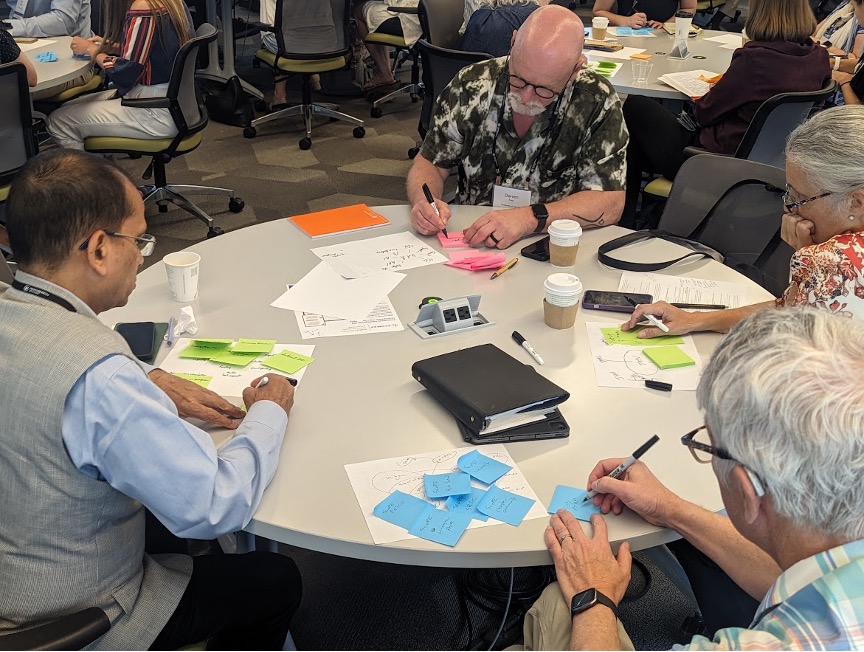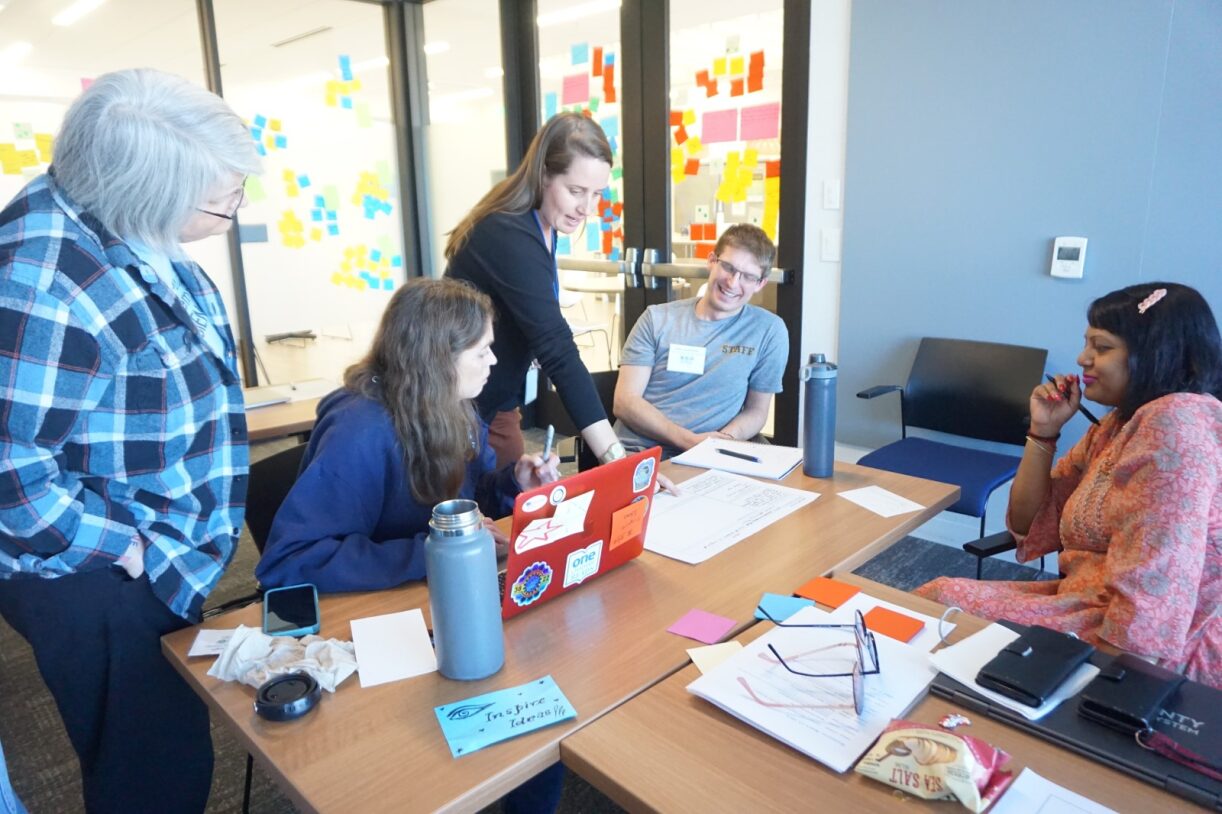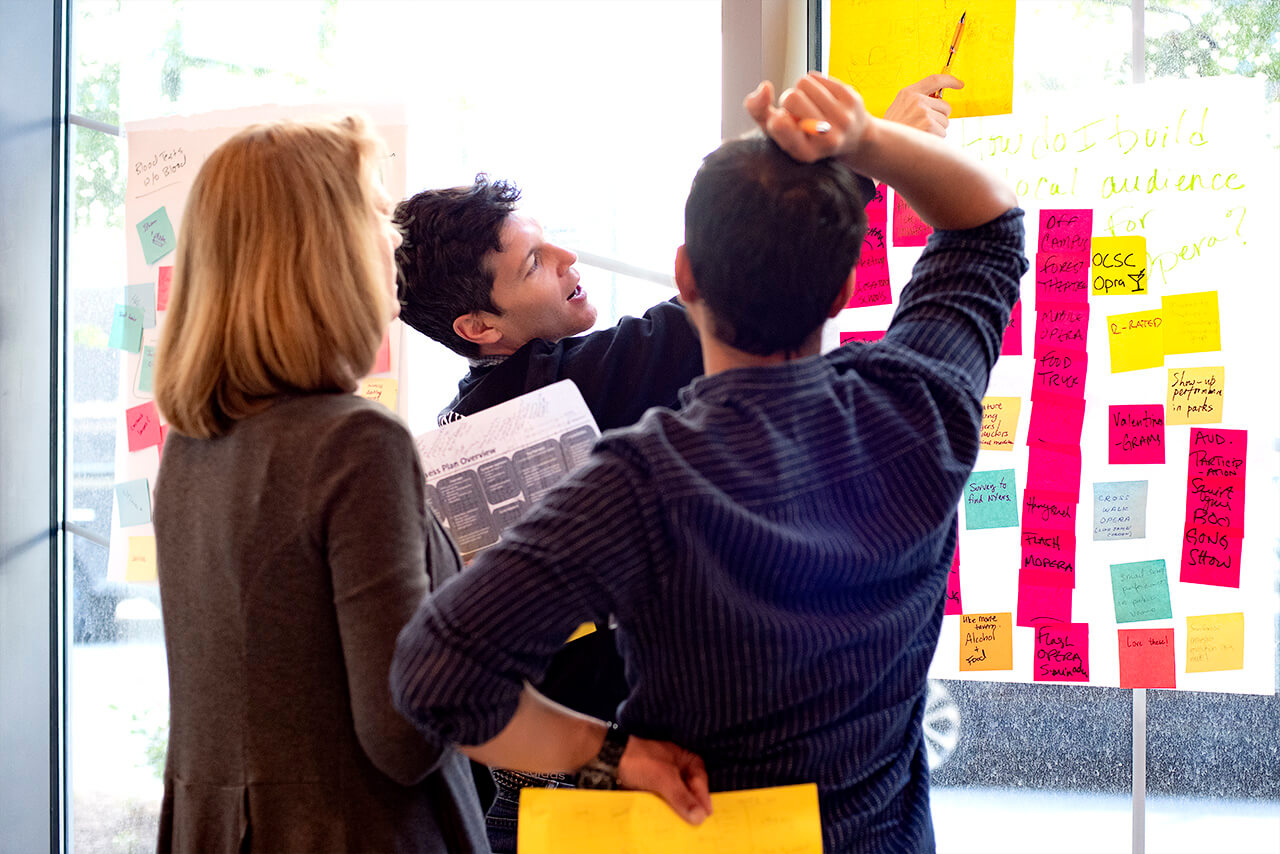Create public good from your innovative ideas
Are you passionate about finding a solution to a social or environmental problem in your community? Interested in working at the intersection of advocacy and entrepreneurship? Or are you building a for-profit business that aims to do good? Today’s innovators strive to shape society and the economy in creative and positive ways, and it’s small steps along the way that lead to transformational change.
Innovate Carolina’s Office of Design and Innovation for the Public Good understands that innovation means more than creating the newest app, the latest technology or even robust revenue models. We will help you develop human centered mindsets, tools, and processes so you can translate your own ideas into innovative solutions that provide community and economic benefit in the state of North Carolina and beyond.
Explore our offerings
Innovate Carolina’s Design and Innovation for the Public Good team can help you learn, share and integrate human-centered design methods and tools to create more innovative outcomes for all. You’ll find new ways to maximize your impact and create strategies for ideas that improve lives and sustain our planet. We can also help you tap into a network of design and innovation experts who can bolster your work and connect you to additional resources provided by a network other departments and programs at UNC-Chapel Hill and beyond. For a full listing of resources, see our online resource directory.

Translating Innovative Ideas for the Public Good (TIIP) Awards

Design Thinking and Innovation Recharge Services

Design Thinking Outcomes Collaborative

Map the System Competition

Carolina Graduate Certificate in Innovation for the Public Good

Faculty Innovation Workshop

Resources for Minority and Female Entrepreneurs
Connect with our team
Our team is ready to strategize with you on how to scale your idea to make an impact.

Kyle McQuillan

Bill Romani, PT, PhD


 | UNC-CH
| UNC-CH
